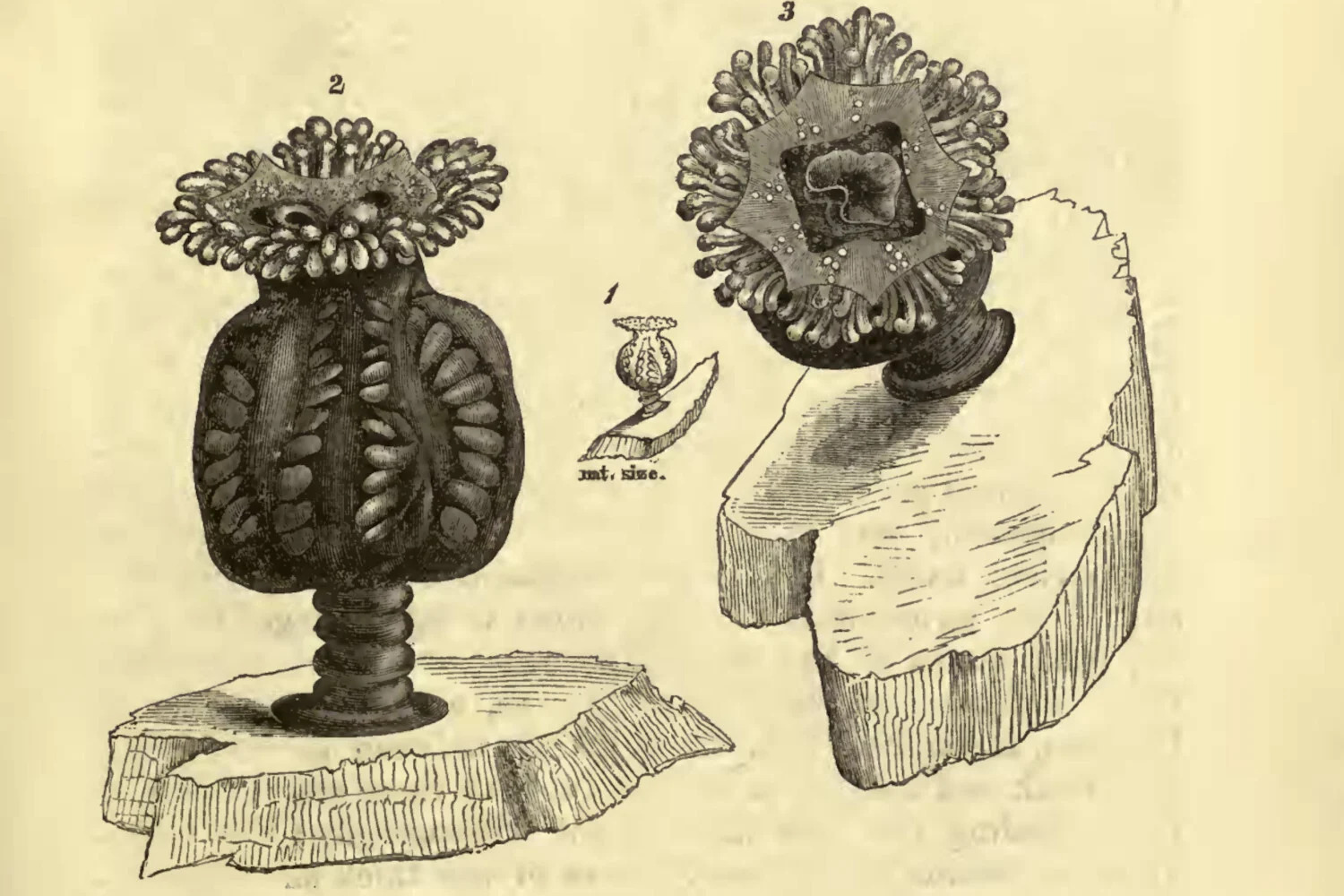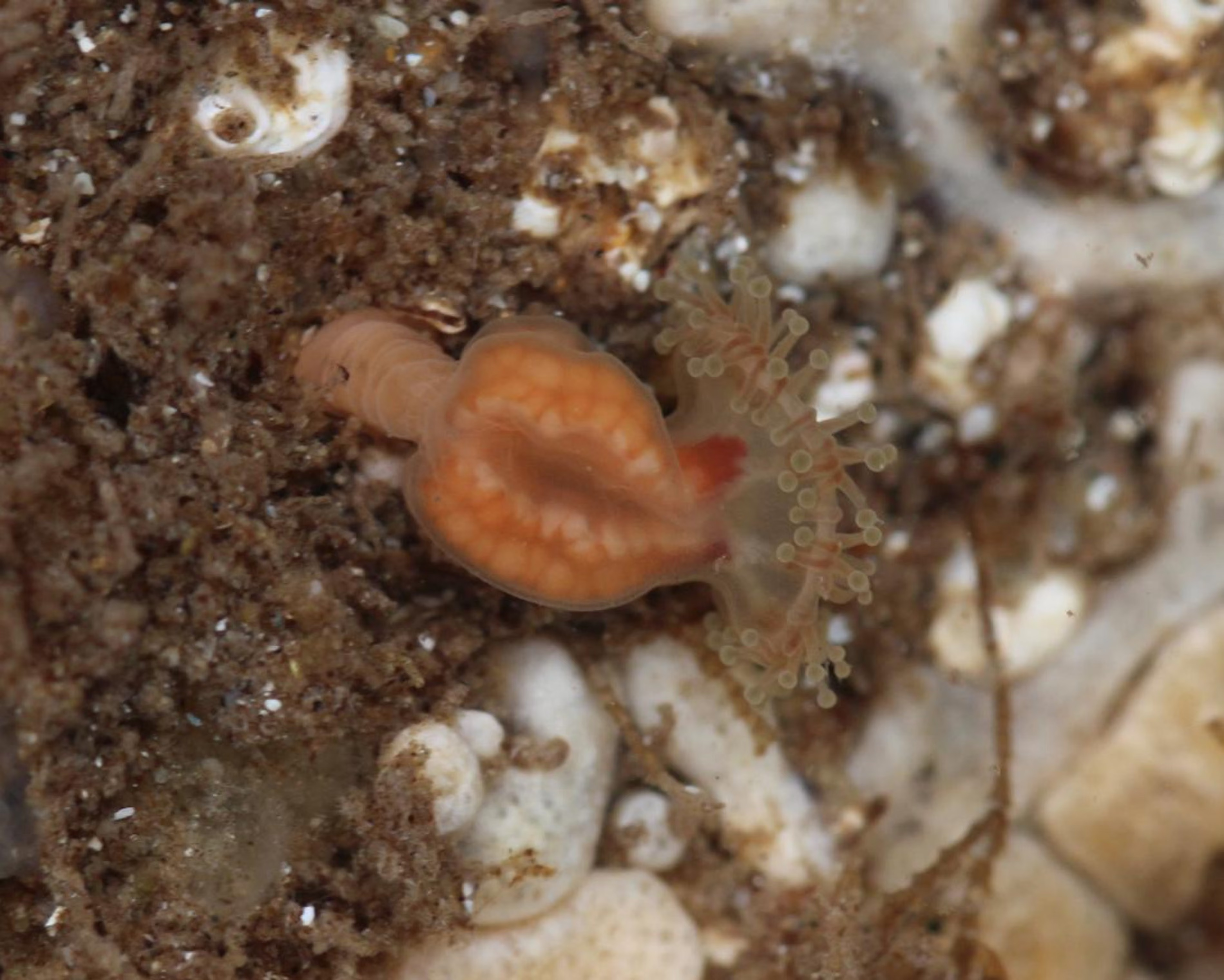Written by: Raghav Bikhchandani & Yash Budhwar
The daily Souk: On my shopping list
Editor’s note: As you may have noticed, we just unveiled a beta version of Souk—which has one simple goal: To help you find unique, high quality products that are worth your time and money. And to help us—the splainer team, lol! We have been happily wasting work hours browsing Souk—and thought it fun to share what made our shopping list—with Senior Editor, Yash, making his picks today.
One: I’ve been living in the same three pairs of shoes for what feels like years now—so this Arizona Soft FootBed Birkenstock is basically my wardrobe intervention. I’m all about all-purpose, low-effort gear, and these tick every box: soft from day one, super sturdy, and the kind of neutral brown that works with everything.
Two: I’m not ashamed to admit I still have my soft toy stash—and yes, I’m adding to it. This knitted elephant toy is just too adorable to resist. There's something instantly comforting about it—simple, well-made, and warm. It’s the kind of piece that holds memories.
Three: No day for me officially begins until I’ve had my coffee—and the smell of it brewing is half the joy. So, this french press coffee maker is pretty much essential. I like that it skips the drama of filters and looks clean on the kitchen counter. And for under Rs 1,000? It feels like a grown-up gift to myself.

PS: This is a beta launch and feedback—good or bad—is key. So please email the team at dearsouk@splainer.in with your thoughts. We want to get this right!
India vs. England: Mohammed hai toh mumkin hai!
The men in blue mounted a stunning comeback on Monday to beat England in the fifth and final Test at The Oval by just six runs—our closest-ever win in Test history. The series ended in a tie at 2-2, mirroring our last Test tour of England in 2021-22.
Mohammed the Magnificent: The star of the show was Mohammed Siraj, who took five wickets in the fourth innings including the match-winner—a low full toss that uprooted Gus Atkinson’s off stump. Siraj became the highest wicket taker of the series with 23 scalps—redeeming himself after his unlucky dismissal that ended the third Test at Lord’s. See the ecstatic winning moment below.
About ‘workload management’: Siraj bowled over 1,000 deliveries in this series—playing each match—which (rightly or not) has amplified questions about Jasprit Bumrah’s “workload management”. He played the first test, sat out the second, returned for the third and fourth—only to miss the critical final test. Sunil Gavaskar now wants the word taken out of the Indian cricket dictionary—though he made it clear that this wasn’t about Bumrah.
PS: The BCCI also put out a special video capturing the moment in the dressing room—mainly to make sure coach Gautam Gambhir didn’t feel left out:)
A single-handed performance: The other big heroic moment came when allrounder Chris Woakes walked out to bat single-handed with his left arm in a sling—after England had lost nine wickets and still needed 17 runs to win. Woakes had dislocated his shoulder while fielding earlier in the match and received rapturous applause from both sets of fans and players for his commitment—as you can see below:
What Ben Stokes said: The English captain—who also missed the final match—called the outcome ‘fair’:
The series as a whole was just all games going to five days. It’s been toe-to-toe for 25 days and two very good teams who have thrown everything at each other and leaving nothing out there. I guess from a cricket fan’s point of view, 2-2 is probably fair.
That said, it was a hard-fought, often tense series fraught with controversies on and off the field.
One: Before the fifth Test began, Gambhir got into a verbal spat with The Oval’s chief curator Lee Fortis—which ended with Gambhir going into full Delhi mode: “You’re just a groundsman, stay in your capacity. You’re just a groundsman, nothing beyond.” Tumhari aukat mat bhoolo etc. See the ugly exchange here.
Two: On day five of the fourth Test in Old Trafford, England captain Ben Stokes offered to shake hands with Ravindra Jadeja and Washington Sundar to end the day’s play early—as the match was petering out to a draw. But the Indian batters refused because they were both close to their centuries—much to the English players’ visible frustration, resulting in a feisty final 15 minutes of play. Check out the verbal back-and-forth below.
The big picture: The 2-2 result also offered vindication to a young team led by a new captain and controversial coach. Gambhir had a fractious relationship with Virat Kohli and Rohit Sharma—but has taken Shubman Gill under his wing. There’s also much gloating over the dawn of a ‘naya daur’ among the pundits:
This series will have a far-reaching impact on Indian cricket. It is a blow to the old hierarchy and a hammer on the head of its deeply-embedded superstar culture, where a few seniors enjoyed excessive power and unreasonable leeway. The very un-Indian decision to hand over the reins to a young captain wasn’t a popular call. It was a bold decision taken by those with influence in the BCCI, national selector Ajit Agarkar and captain Gautam Gambhir.
Reminder: Under Gambhir’s tenure, India had lost 6 out of the previous 8 tests—including a 3-0 thrashing at home to New Zealand and a 3-1 defeat away to Australia. Gill and Siraj sort of saved his backside. With India’s next two series at home against West Indies and South Africa in October-November, that track record can only improve.
Reading list: ESPNCricinfo and The Hindu have the match report. The Telegraph traces Siraj’s redemption arc—years in the making—but The Independent’s tribute is a better read. Indian Express praises the making of Gill—and the new era of cricket.
Air pollution is melting Himalayan glaciers
Air pollution has often been considered a double-edged sword by climate scientists. The toxic haze slows global warming—but destroys our health. A new study reveals an unexpected and more immediate danger lurking in the air. Soot, or black carbon—produced by household stoves, crop burning, and diesel engines—is melting glaciers. Specifically, between 2007 to 2016, it was responsible for nearly one-third (33.7%) of the glacier loss on the southern Tibetan Plateau.
How is this happening?: There are two ways these soot particles impact glaciers:
- When soot settles on glaciers, it reduces their ability to reflect sunlight (what scientists call “albedo”). The darker surface absorbs more heat, leading to a faster melt.
- Black carbon also changes how clouds form—reducing snowfall. That means glaciers are not sufficiently replenished during winter.
How the soot blows: Scientists tracked the pathway of these soot particles all the way from the Indo-Gangetic plain to the upper reaches of the Himalayas:
The model traced the atmospheric pathways that carry black carbon particles and revealed how upslope winds funnel pollution from the densely populated Indo-Gangetic plain through deep mountain valleys like the Kali Gandaki, flowing past the Himalayan barrier and delivering black carbon to interior glacier zones by both dry deposition and snowfall.
The other great worry: Most of India’s black carbon comes from household cooking fires, brick kilns, crop burning, and outdated industrial setups. But only 2% of our air pollution policies target these sources of soot. OTOH, quick, focused intervention can have immediate effect:
[B]lack carbon’s short atmospheric life creates an opportunity for rapid climate intervention. Unlike carbon dioxide, it lasts only days to weeks in the atmosphere. It means emission cuts can deliver fast results. The modelling in Yang’s study suggests that cutting black carbon emissions across South Asia by 50-80% over two decades, could prevent up to one-third of future glacier loss.
Read Mongabay for more details. You can find the study here.
The origin of potatoes: A weird plant love story
Scientists have finally cracked the mystery of where potatoes come from—and the answer is delightfully bizarre. Turns out, the humble spud was born from a prehistoric fling between two plants: an ancestor of the modern tomato and a wild, potato-like species called etuberosum.
The aloo love ishtory: When this ancient plant romance occured—nearly nine million years ago—neither the tomato nor the etuberosum had tubers. You can see the latter below:

But when the two plants cross-bred, their offspring developed the underground, nutrient-packed stem that grows into the potatoes we eat:
Most surprising of all was that the potato’s key tuber-forming genes emerged as a combination of genetic material it received from each parent—despite the fact that neither tomato nor etuberosum has tubers. Specifically, tomatoes gave potatoes the gene that tells the plant to make tubers, whereas etuberosum passed on a gene that helps control the growth of tubers.
So we ended up with the plant that looks like this instead:

And our plates and waistlines have never been the same again! (Gizmodo)
MAP Academy fellowships alert!!
Editor’s note: As you know, the wonderful MAP Academy is our content partner for Advisory. It is one of the few Indian institutions deeply invested in cultural research and education. They also offer rare funded opportunities for researchers, designers, archivists, journalists, writers and educators. The Nalli Fellowship is one of them.
Over to MAP Academy…
We’re pleased to announce that a new cycle of the MAP Academy & Nalli Fellowships will open to applications soon. Designed to support research and practice in South Asia’s diverse textile traditions, the Fellowship is born out of a collaboration between MAP Academy and Nalli Silks, a heritage textile brand based in India.
Programme Details: Four fellowships, each with a grant of INR 5,50,000, will be awarded.
The programme is open to a wide range of people, from individuals to collectives, from researchers to practitioners. We’re hoping to receive applications on a range of subjects, and these include:
- Histories of clothing and costume
- Community or personal textile archives
- Textiles in religious or liturgical contexts
- Environmental impact of textile production and consumption
- Endangered or disappearing textile traditions
- Critical perspectives on revivalism
- Labour in textile production, with a focus on caste, class, and gender
- Textiles in relation to other cultural forms—storytelling, poetry, music, architecture, and material culture
- Textiles in the context of archaeological study
- Textiles as symbols or metaphors in literature or mythology
- Techniques and tools used in specific textile traditions
You can read more about the Fellowships here. We will begin accepting applications starting August 18, 2025.
To register your interest and receive a reminder when applications open, please visit this link. For any queries, contact us at: fellowships@map-india.org
what caught our eye
business & tech
- Big Tech earnings this week showed just how wild the AI boom has gotten—with Meta, Microsoft, Apple, and Amazon all spending more than expected on it.
- Tesla’s once industry-leading brand loyalty has taken a sharp hit ever since Elon Musk publicly backed Trump last July—dropping from 73% to below the industry average, new S&P data shows.
- Wall Street Journal (splainer gift link) has a good read on how AI-powered note-taking tools are picking up everything you say in meetings—even the stuff you didn’t mean for everyone to hear.
- Following its antitrust loss to Epic, Google revealed it had just 14 days to overhaul key Play Store policies—but a last-minute court stay now gives it at least three more weeks to comply.
- Google will limit power use at its AI data centers during peak hours to ease pressure on the overstretched US electricity grid.
- OpenAI has pulled a ChatGPT feature after users discovered their private chats were unexpectedly showing up in Google search results.
- Spotify’s stock jumped 7% after it announced global price hikes—including a bump in India’s Individual Premium plan from Rs 119 to Rs 139 a month—starting this September.
- Bill Gates urges Gen Z to embrace AI as a “fun and empowering” tool, but warns it won’t guarantee job security, with smart systems threatening even entry-level roles in an already tough market.
- More than 10,000 hotels in Europe have filed a class-action lawsuit against Booking.com, accusing it of violating antitrust laws by blocking them from offering cheaper prices elsewhere—a practice ruled illegal by the EU last year.
- Bloomberg's Mark Gurman reports that Apple has set up a new team—called AKI—to build a ChatGPT-style “answer engine” that pulls info from the web.
- Tesla has approved a $29 billion stock payout to Elon Musk in a bid to keep him focused on the company after his earlier pay deal was struck down in court.
sports & entertainment
- The Conversation has a good read on why World Athletics’ new rule requiring female athletes to undergo genetic testing for the SRY gene is scientifically flawed—written by the very researcher who discovered the gene in 1990.
- Kerala fans are fuming after the state Sports Minister once again backtracked on his claim that Messi and the Argentina team would visit—marking the second such U-turn in two months.
health & environment
- The Lancet warns that the world is facing a $1.5 trillion plastics crisis, with rising production harming human health from birth to old age—just as global talks on a treaty to curb plastic use remain stalled by oil-rich nations.
- A new study by the Wildlife Institute of India warns that rising nest temperatures are causing more female gharial hatchlings—threatening the future of this critically endangered species by disrupting its breeding balance.
- Thousands in Kolhapur held a silent march demanding the return of 36-year-old elephant Mahadevi—also known as Madhuri—from the Ambani's Vantara wildlife project facility in Gujarat.
- Ars Technica has a good read on how five children in South Africa went into HIV remission after early treatment—raising hopes that a long-sought cure for HIV might first be found in kids, not adults.
- The Gates Foundation has pledged $2.5 billion to boost research into women’s health—focusing on maternal, menstrual, and sexual wellbeing.
- Aalborg Zoo in Denmark is inviting people to donate small pets—like rabbits, guinea pigs, and chickens—to be humanely euthanised and used as food for its predators, in a bid to recreate the natural food chain.
meanwhile, in the world
- Hamas says it will allow the Red Cross to deliver aid to hostages in Gaza—but only if Israel stops airstrikes and opens permanent humanitarian corridors.
- Netanyahu is set to meet his security cabinet this week to decide Israel’s next move in Gaza—with one senior official hinting that more military action could be on the table.
- Meanwhile, the UN warns that every child under five in Gaza—around 320,000—faces life-threatening malnutrition, as Israel’s blockade continues to cripple nutrition services, with rising cases of starvation-related deaths and paralysis.
- Kremlin-linked companies are profiting by redeveloping and selling homes in occupied parts of Ukraine—on land destroyed by Russia’s own invasion.
- The White House is planning an executive order to penalise banks that cut off conservatives or crypto firms over political reasons.
- The US plans to launch a pilot program requiring some tourist and business visa applicants to pay bonds of up to $15,000—aimed at countries with high overstay rates and weak document controls.
- A BBC investigation unveiled how girls as young as 13 are being trafficked for sex in Kenya—with the help of women known as “madams.”
- A 2014 paper by US economists Dean Spears and Michael Geruso linked higher infant mortality among Hindus in India to open defecation, a claim now resurfacing amid debate over their new book’s thesis that humanity is heading toward global depopulation, an argument backed by none other Elon Musk.
- A woman has been arrested in New Zealand after a bus driver found a moving suitcase in the luggage compartment—with a 2-year-old girl inside.
meanwhile, in India
- Shibu Soren—influential tribal leader, JMM founder and three-time Jharkhand CM—has died at 81 while undergoing treatment in Delhi for a kidney ailment.
- The Defence Ministry has dismissed claims that the Pahalgam attackers killed in ‘Operation Mahadev’ were confirmed Pakistani nationals, saying no such report was issued by official defence sources.
- Less than a week after slapping a 25% tariff on Indian imports, Trump has now threatened to hike it even further—accusing India of profiting from Russian oil; Delhi hit back, calling the criticism “unjustified” and pointing out that the US and EU trade more with Russia than India does.
- Odisha Police have arrested two students, including an ABVP office-bearer, for abetment of suicide after a college student set herself on fire last month over inaction on her sexual harassment complaint.
- Artisans from Hupari, Maharashtra—known for their silver anklets—are hoping for a revival as their GI-tagged craft catches the eye of Prada, which is now considering a collaboration after backlash over its Kolhapuri-style sandals.
- The Uttarakhand High Court has stayed the conviction of vaccine scientist Akash Yadav—found guilty of abetting his wife’s suicide—saying his research is of critical public value and the suspension is in the larger interest of society.
Three things to see
One: The August print edition of Vogue magazine features a series of Guess ads showcasing its summer collection. The catch: The model is AI-generated. And she is a stereotypical blonde hottie—raising questions for what that means for an industry that is just about embracing diversity.
The Guess executives picked her out of ten draft models, btw. When asked why they don’t have more diverse AI models, the company founders said: "We've posted AI images of women with different skin tones, but people do not respond to them — we don't get any traction or likes.” Now, that’s sad. (BBC News)

Two: A heavy stick insect—seems a bit of an oxymoron, right? But researchers have now discovered a new species that is 40 centimeters (15.75 inches) long and weighs 44 grams (1.55 ounces)—about as much as a golf ball. It is believed to be the heaviest insect ever recorded in Australia—which has more than its fair share of freaky bugs. See the stick insect below. (Deutsche Welle)
Three: This happens fairly often—happily. Scientists think a species is dead and gone forever—only to have it pop up again decades later. The latest bit of happy news involves a jellyfish species. It was discovered on a Scottish island by a tourist—50 years after it was declared extinct. Here’s the even happier bit: Until now, we only had Edwardian era drawings and paintings of the Depastrum cyathiforme, like so:

Now we finally have a photo. Sadly, the drawings are more compelling—as is always the case with life and art. (Gizmodo)

feel good place
One: Also a lap elephant.
Two: The one upside of the impending splainer news shutdown… too soon?
Three: Forget kids, kittens are the best on-air-bombers ever.


 souk picks
souk picks